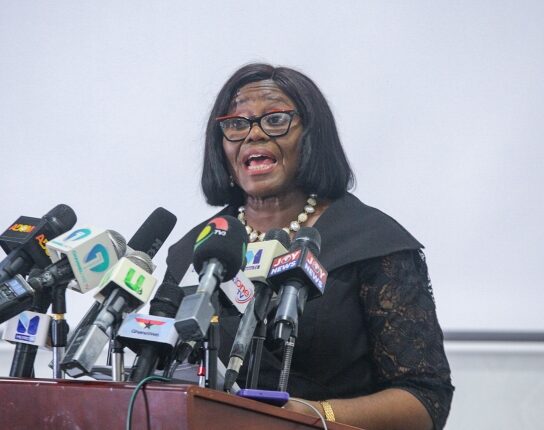In a historic statement on June 25, 2025, Chief Justice Gertrude Sackey Torkornoo raised alarming concerns about the unconstitutional and irregular proceedings targeting her removal from office.
She emphasized that the process, the first of its kind in Ghana’s 68-year history, violates fundamental principles of justice and due process. Chief Justice Torkornoo highlighted the lack of transparency, including the refusal to hold public hearings despite her Supreme Court application, and the committee’s failure to provide her with copies of the petitions or specific allegations. These actions, she argued, undermine the rule of law and set a dangerous precedent for Ghana’s democracy.
The Chief Justice detailed multiple violations, such as the committee’s refusal to recognize her counsel, the exclusion of her family from hearings, and the unusual choice of Adu Lodge—a site tied to Ghana’s dark history of judicial murders—as the venue. She questioned whether this was intended to intimidate her, noting the psychological toll of such tactics. Additionally, she revealed that the committee is operating outside legal norms, rejecting established inquiry procedures in favor of adversarial litigation rules, which further skew the process. These irregularities, she asserted, render the proceedings illegitimate and politically motivated.
Chief Justice Torkornoo also addressed the baseless nature of the petitions against her, which include frivolous allegations about travel expenses, staff transfers, and judicial decisions. She provided documented evidence refuting each claim, demonstrating that they either misrepresent facts or ignore long-standing judicial protocols. Notably, one petitioner, Daniel Ofori, accused her of misconduct in cases where she had recused herself due to prior dissenting opinions. She questioned the fairness of allowing a judge who ruled in Ofori’s favor to chair the removal committee, citing a clear conflict of interest.
Beyond personal vindication, the Chief Justice framed her resistance as a defense of Ghana’s institutions. She warned that if such flawed processes succeed, no judge or independent constitutional officer will be safe from politically driven removals. Quoting Martin Niemöller’s famous reflection on silence in the face of injustice, she urged Ghanaians to recognize the broader threat to judicial independence and democratic integrity. Her stand, she emphasized, is not about clinging to power but about preserving the rule of law for future generations.
In closing, Chief Justice Torkornoo expressed unwavering confidence in her integrity and called for national vigilance against the erosion of constitutional safeguards. She reaffirmed her commitment to due process, despite the personal toll, and appealed to Ghanaians to reject the “darkness” of unlawful proceedings. Her statement serves as both a courageous personal defense and a rallying cry to protect Ghana’s democracy from backsliding into tyranny. As the nation grapples with these revelations, the question remains: Will justice prevail, or will political agendas triumph over the Constitution?
Statement by Chief Justice Sackey Torkornoo



